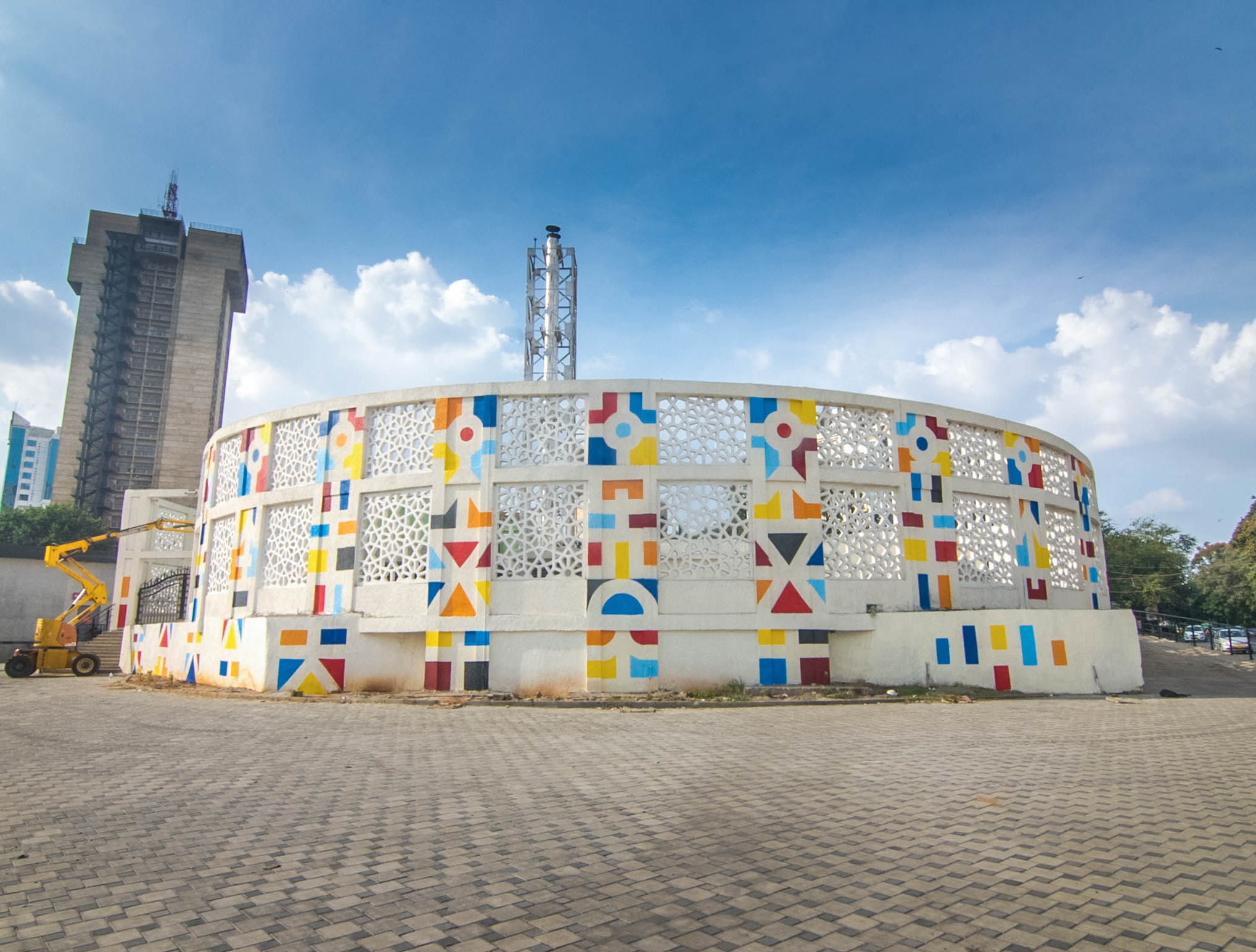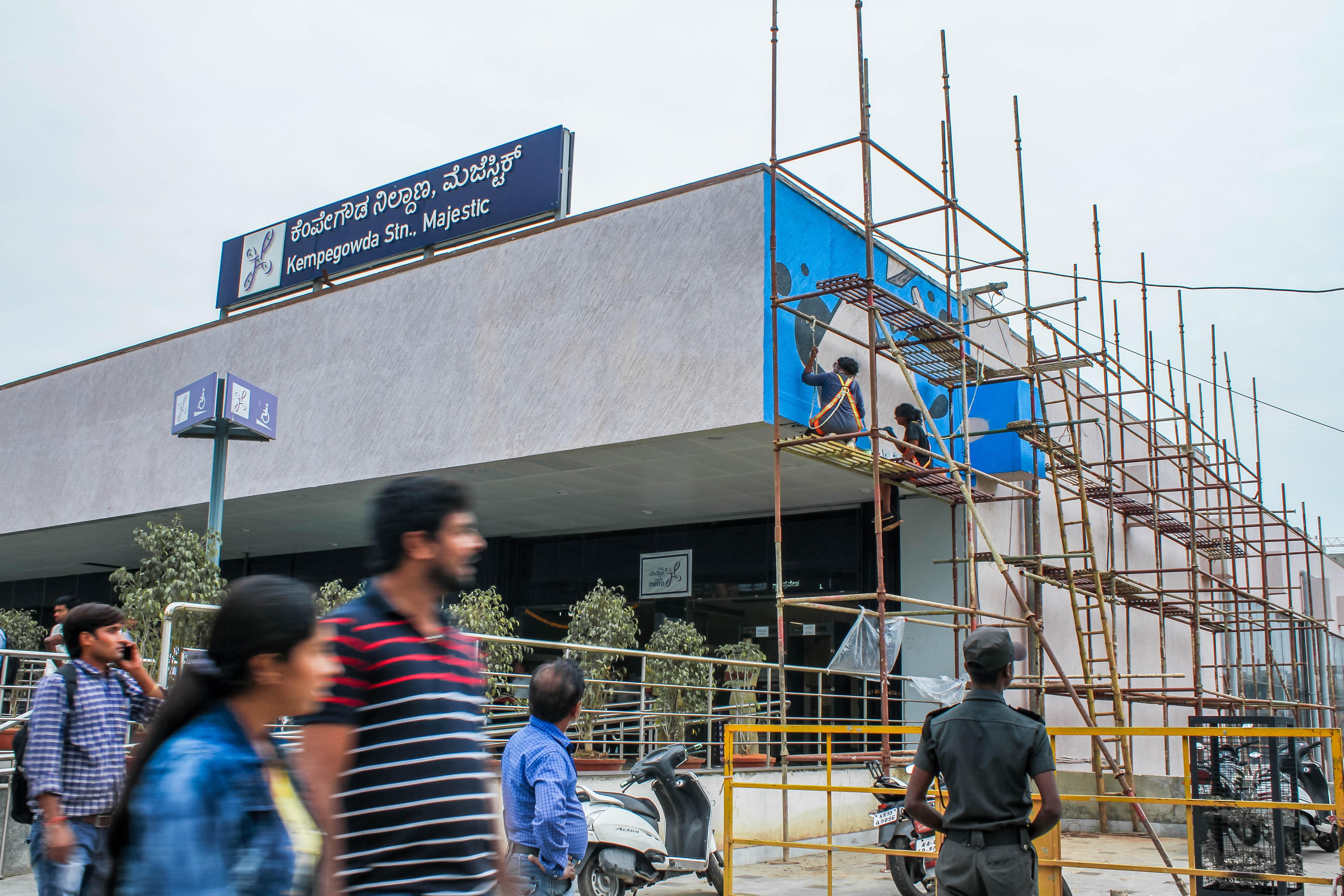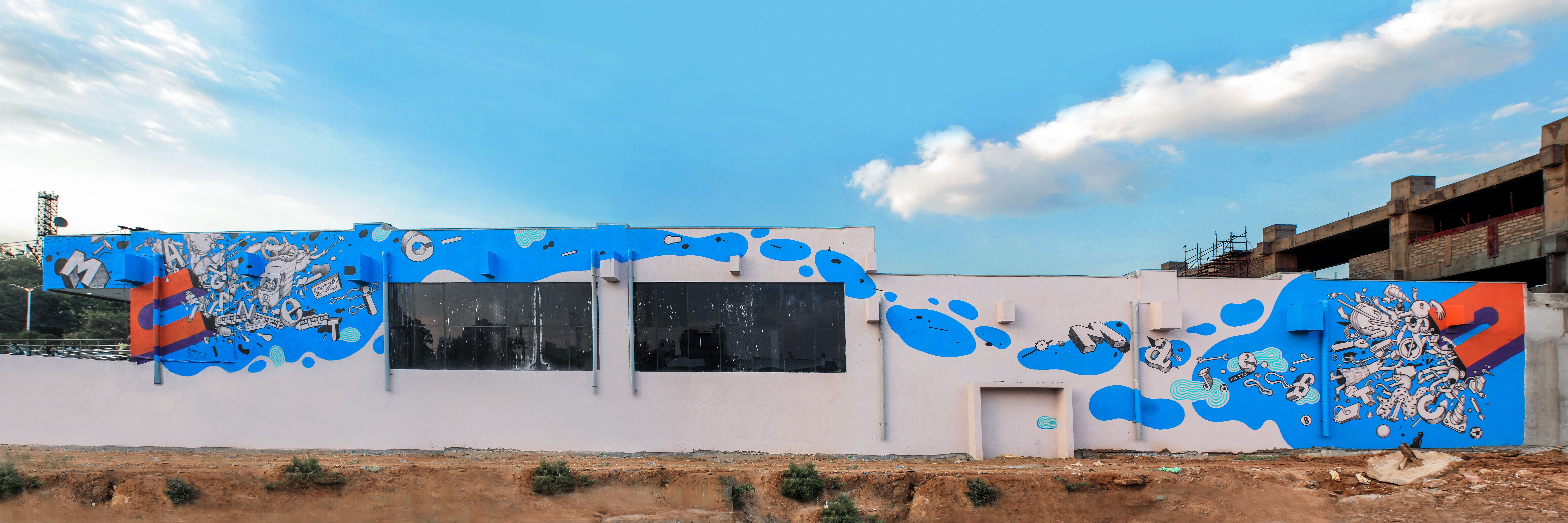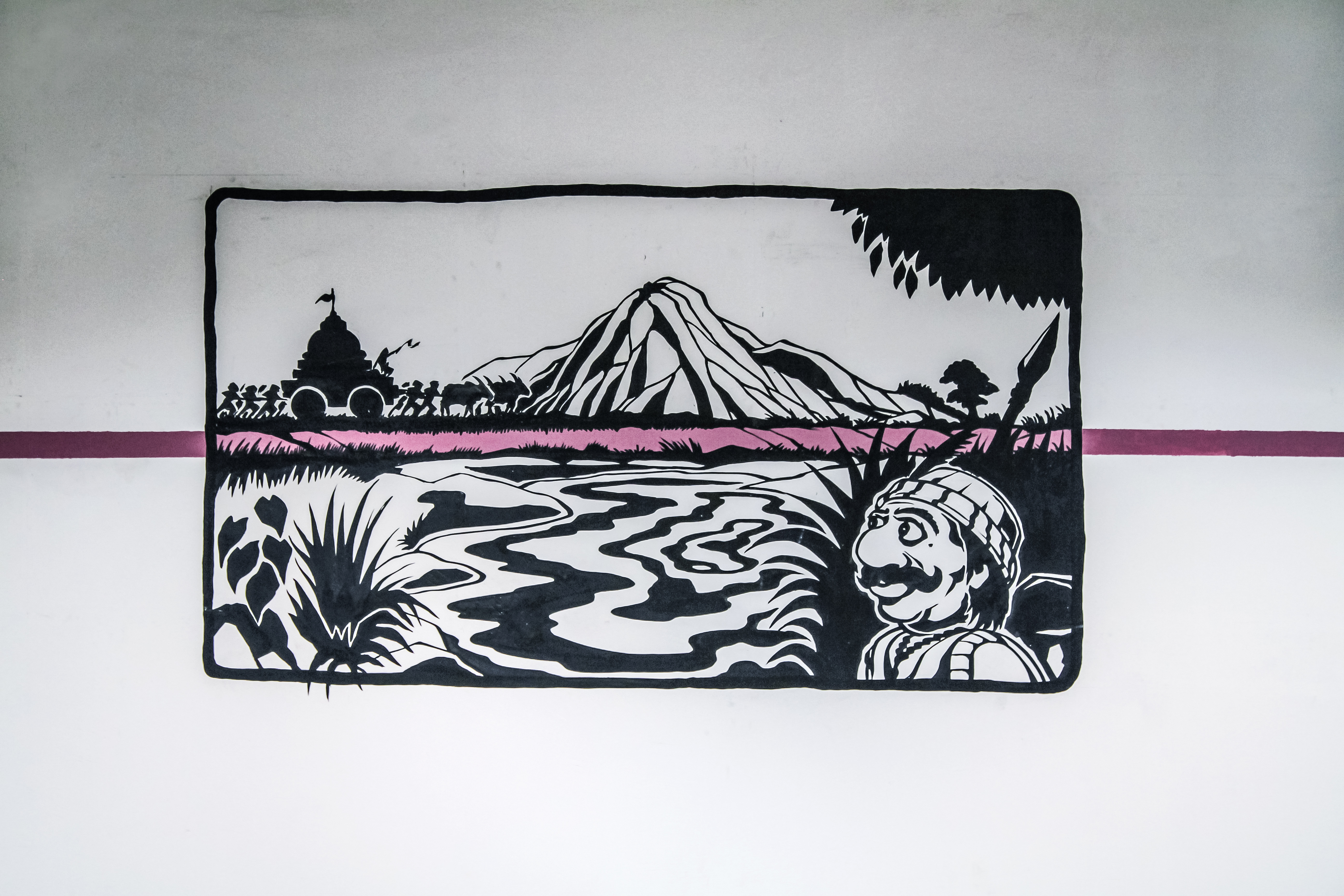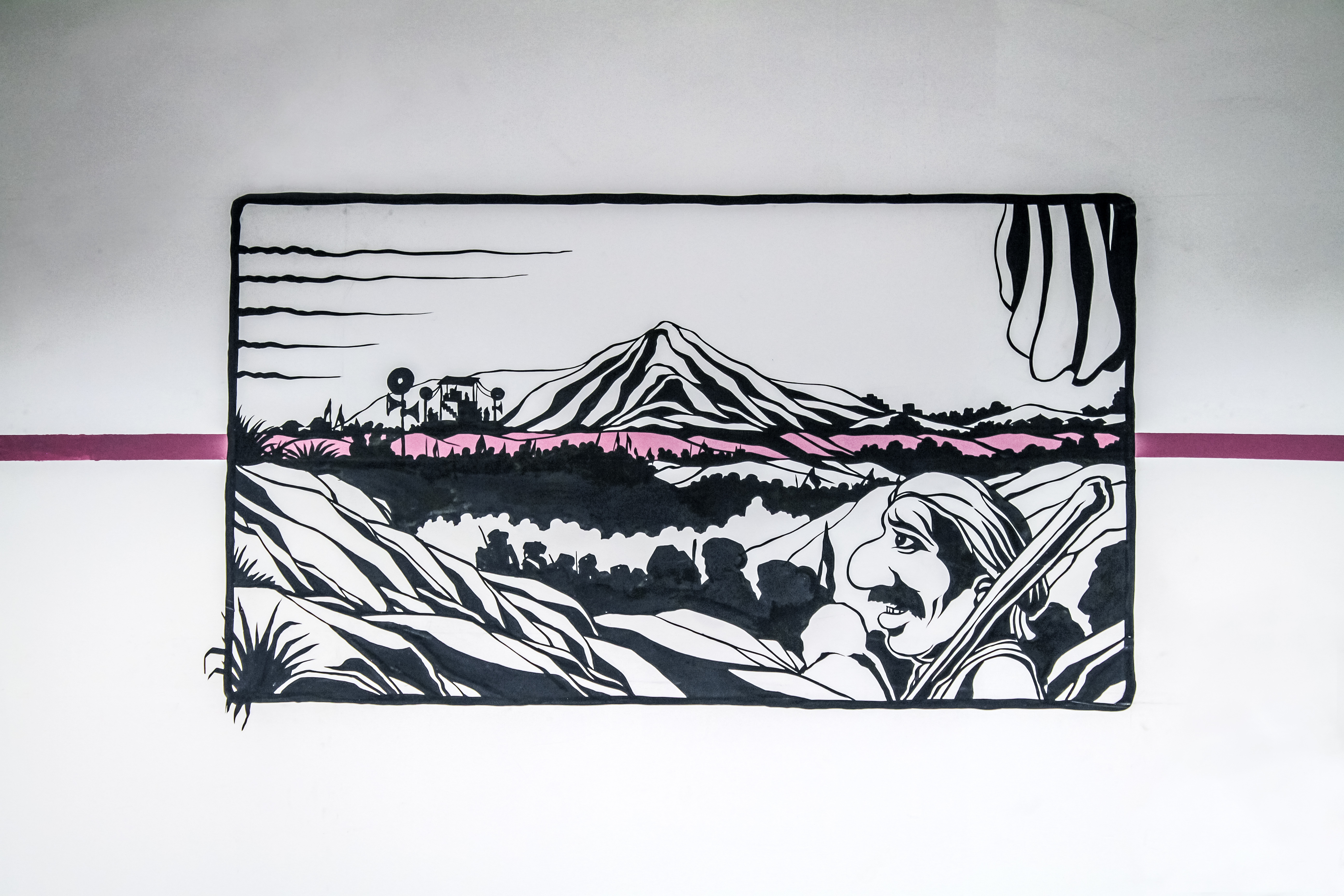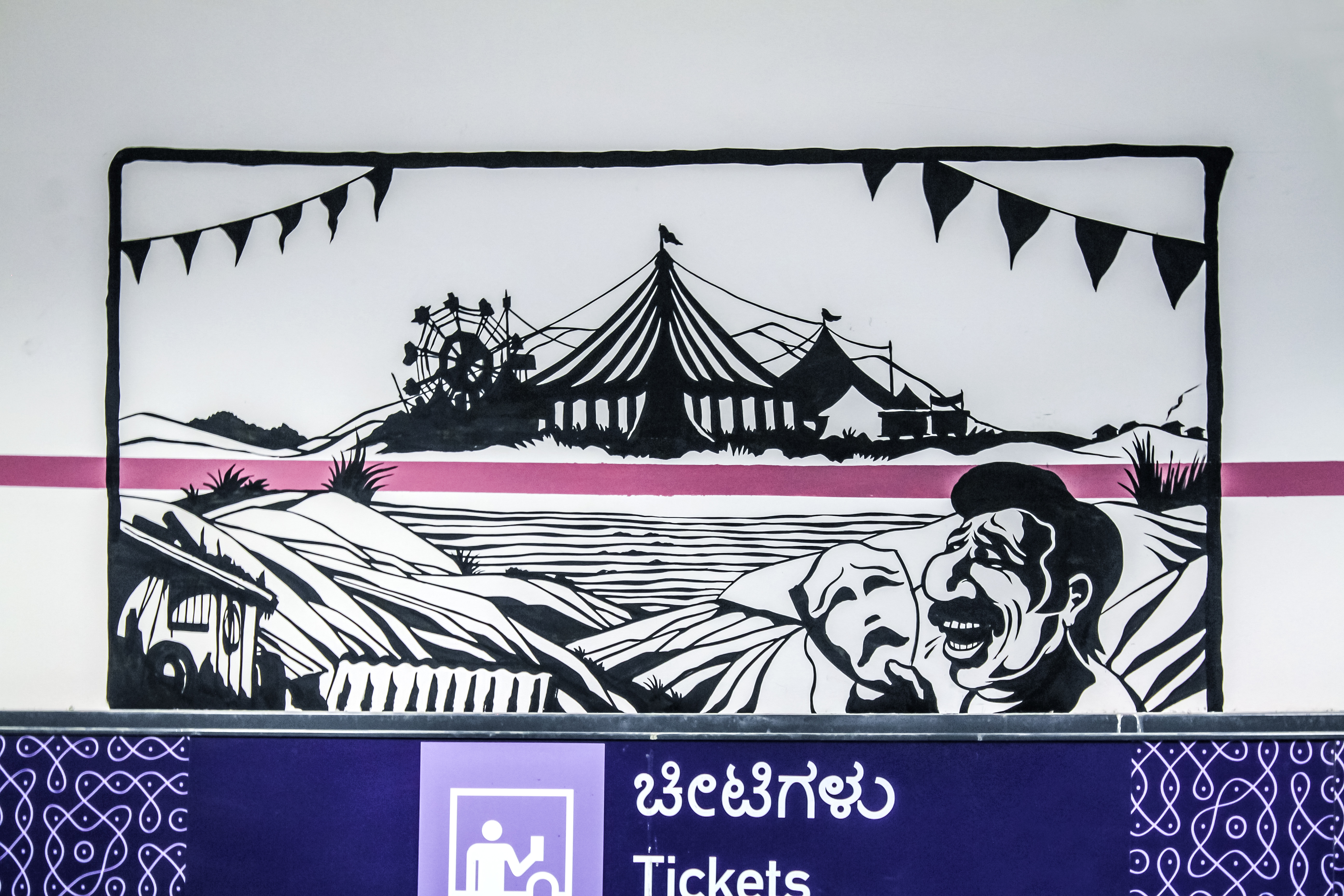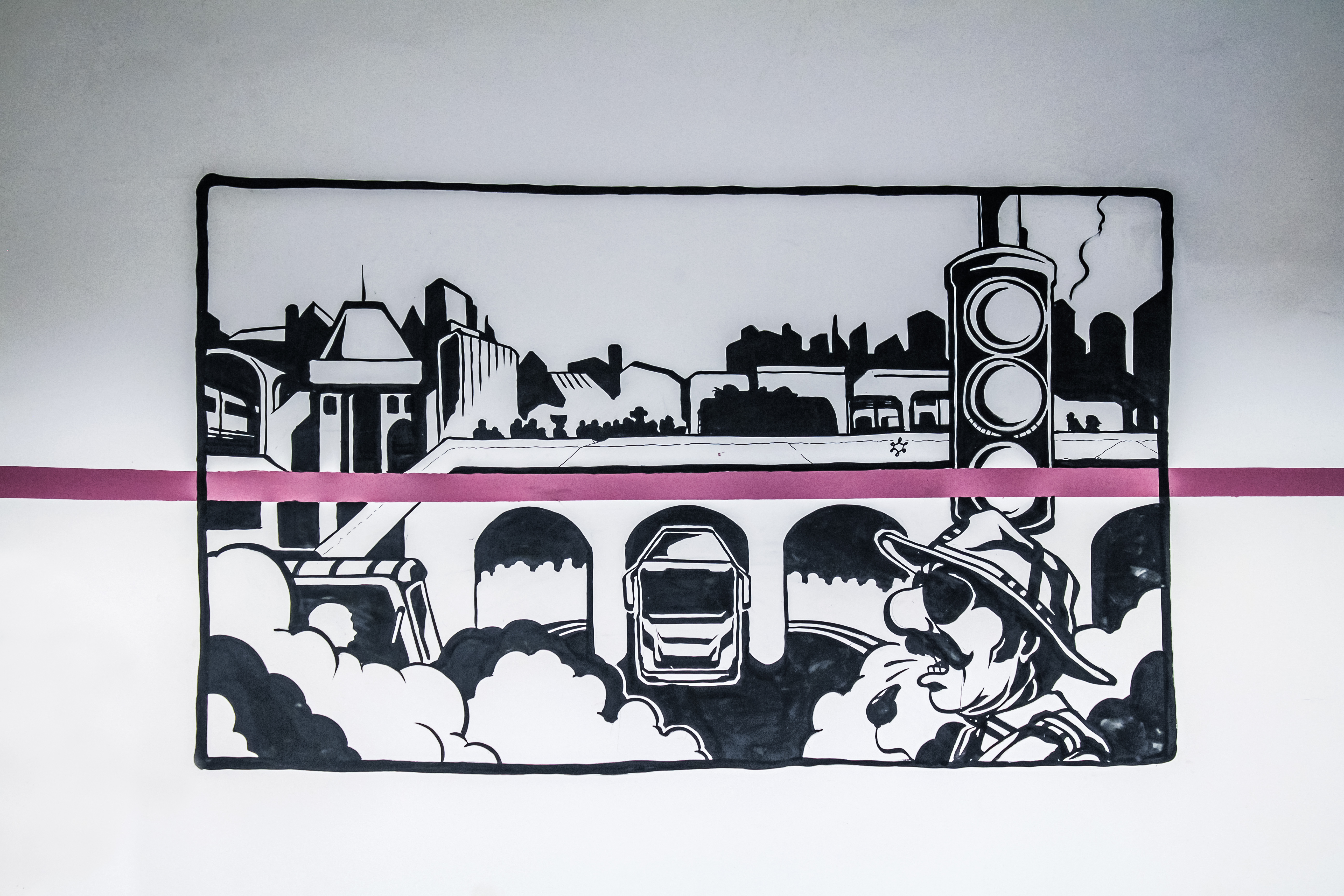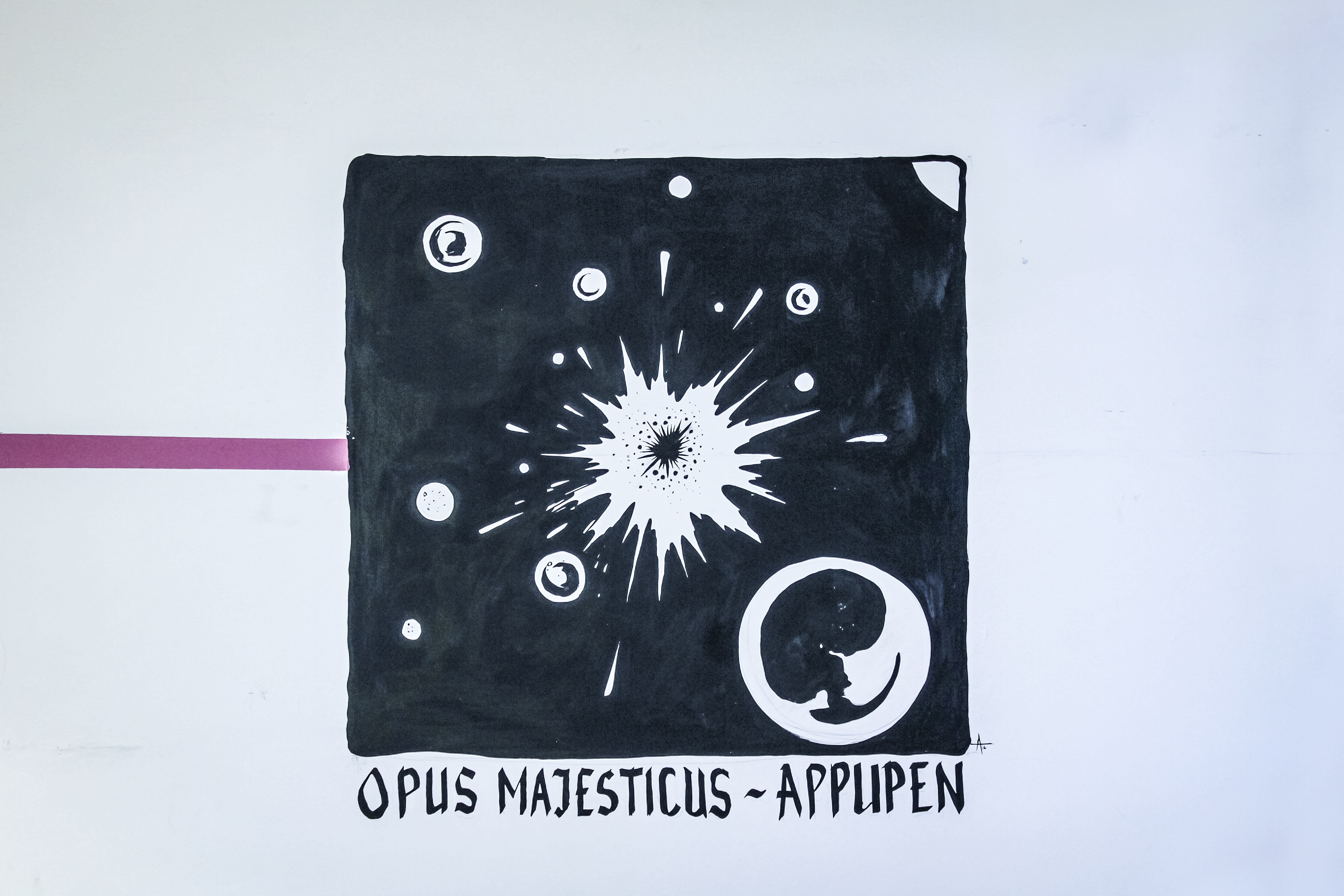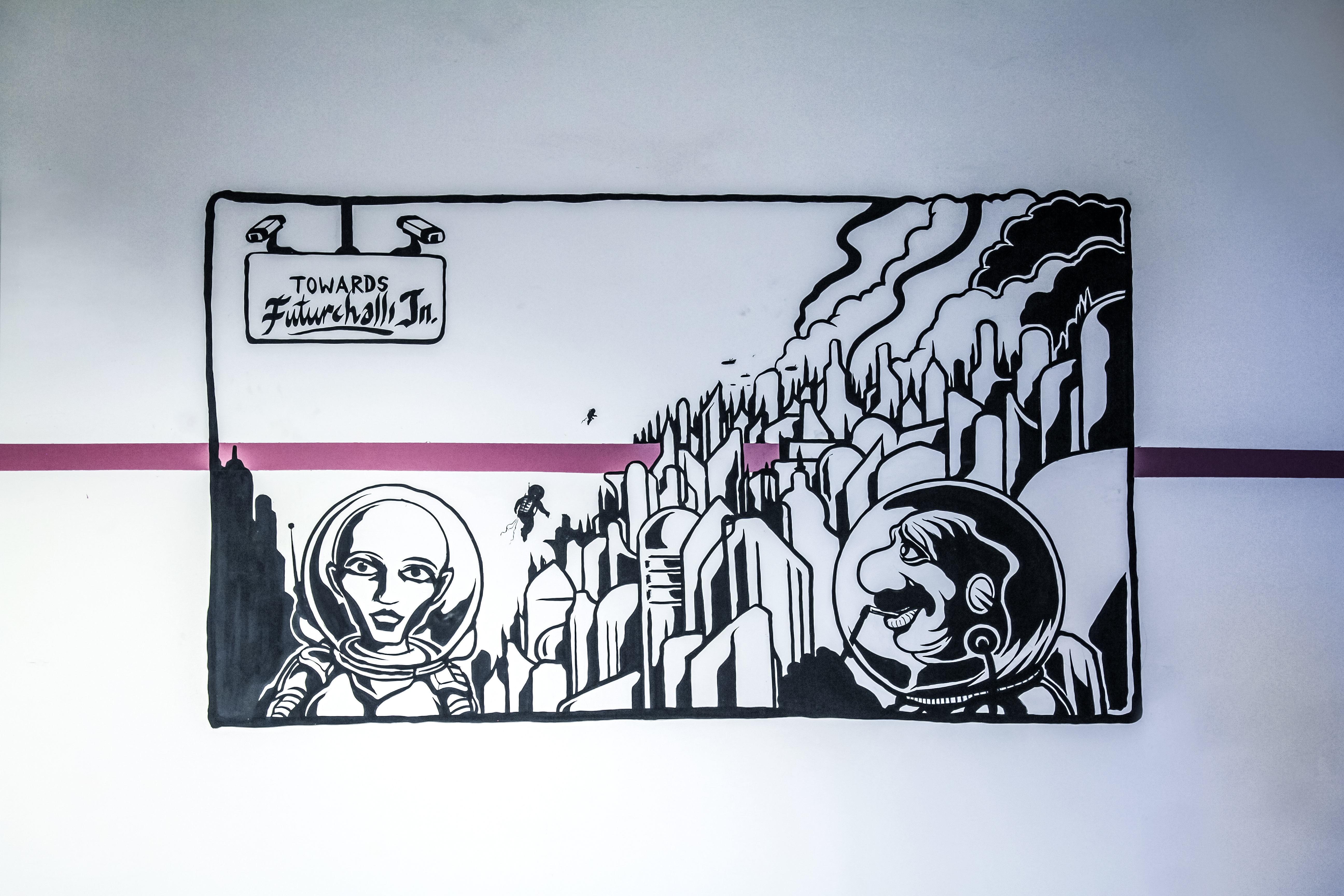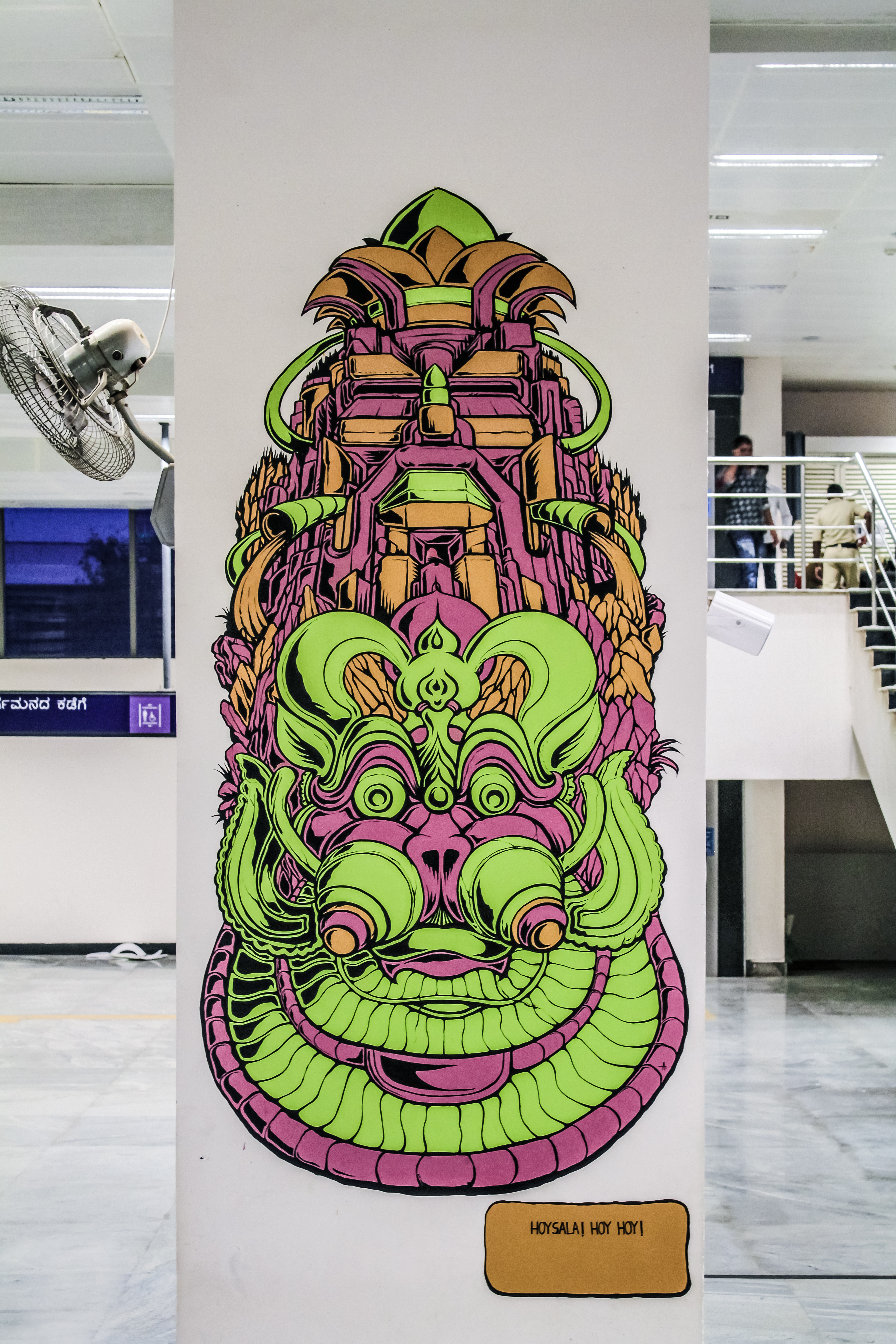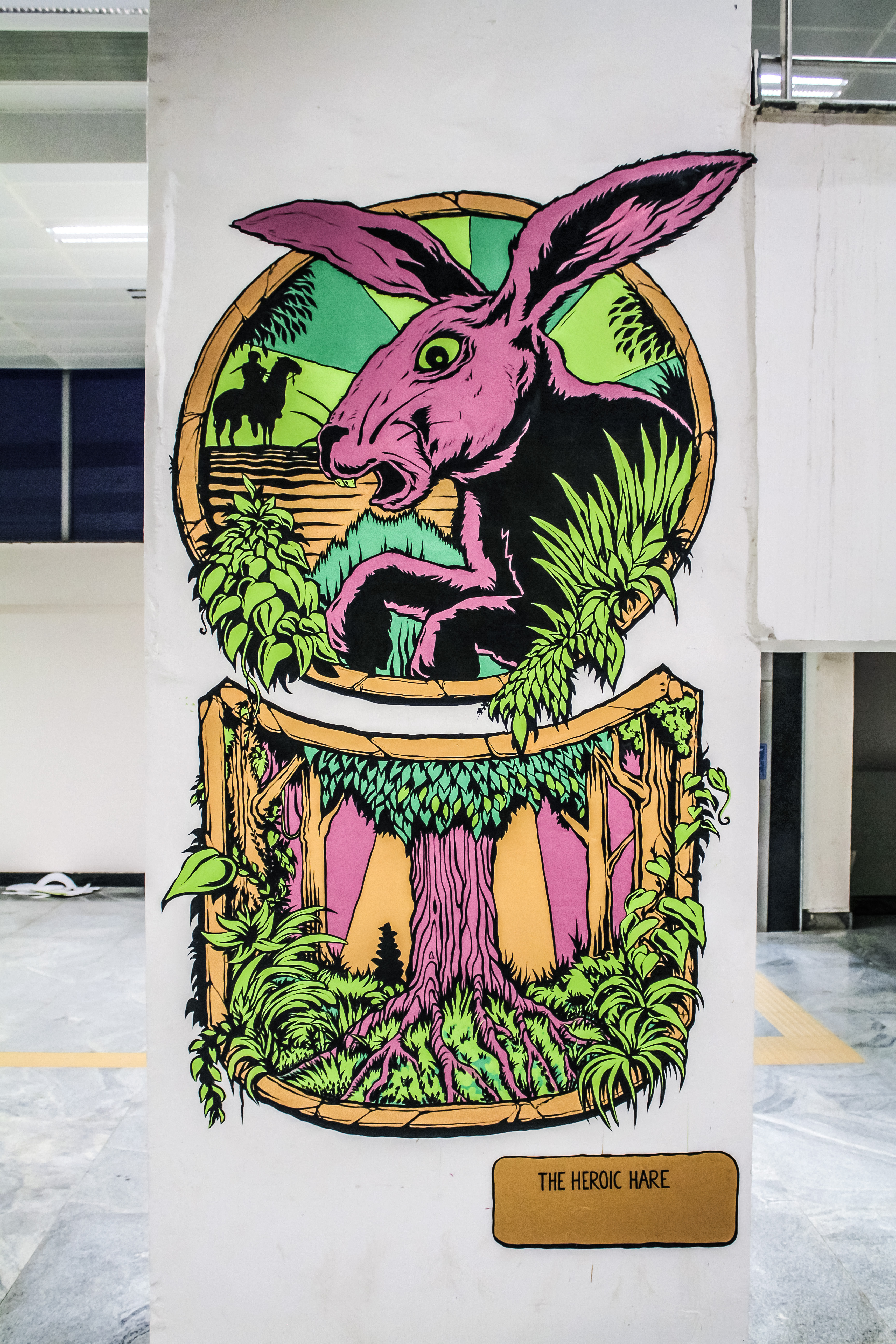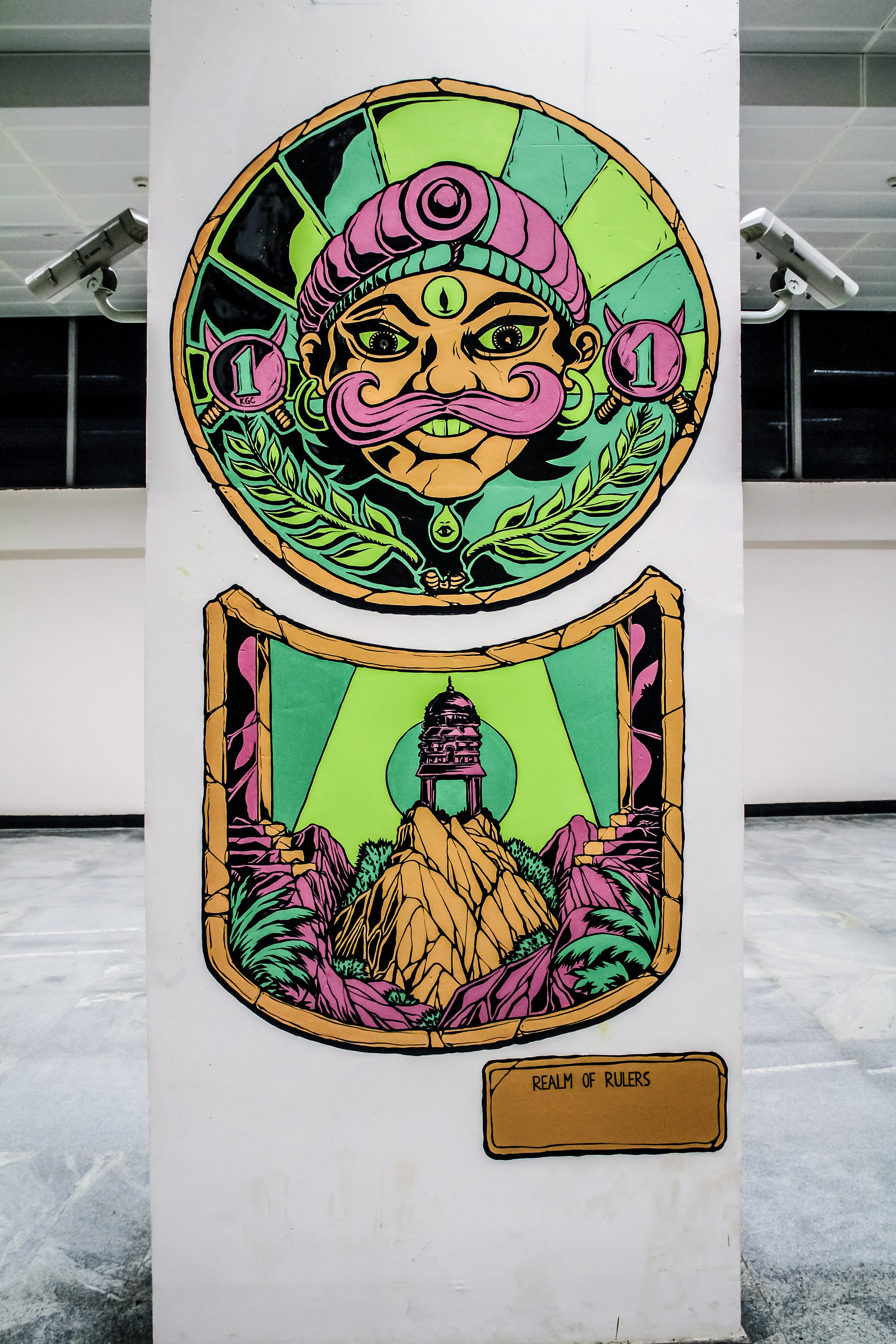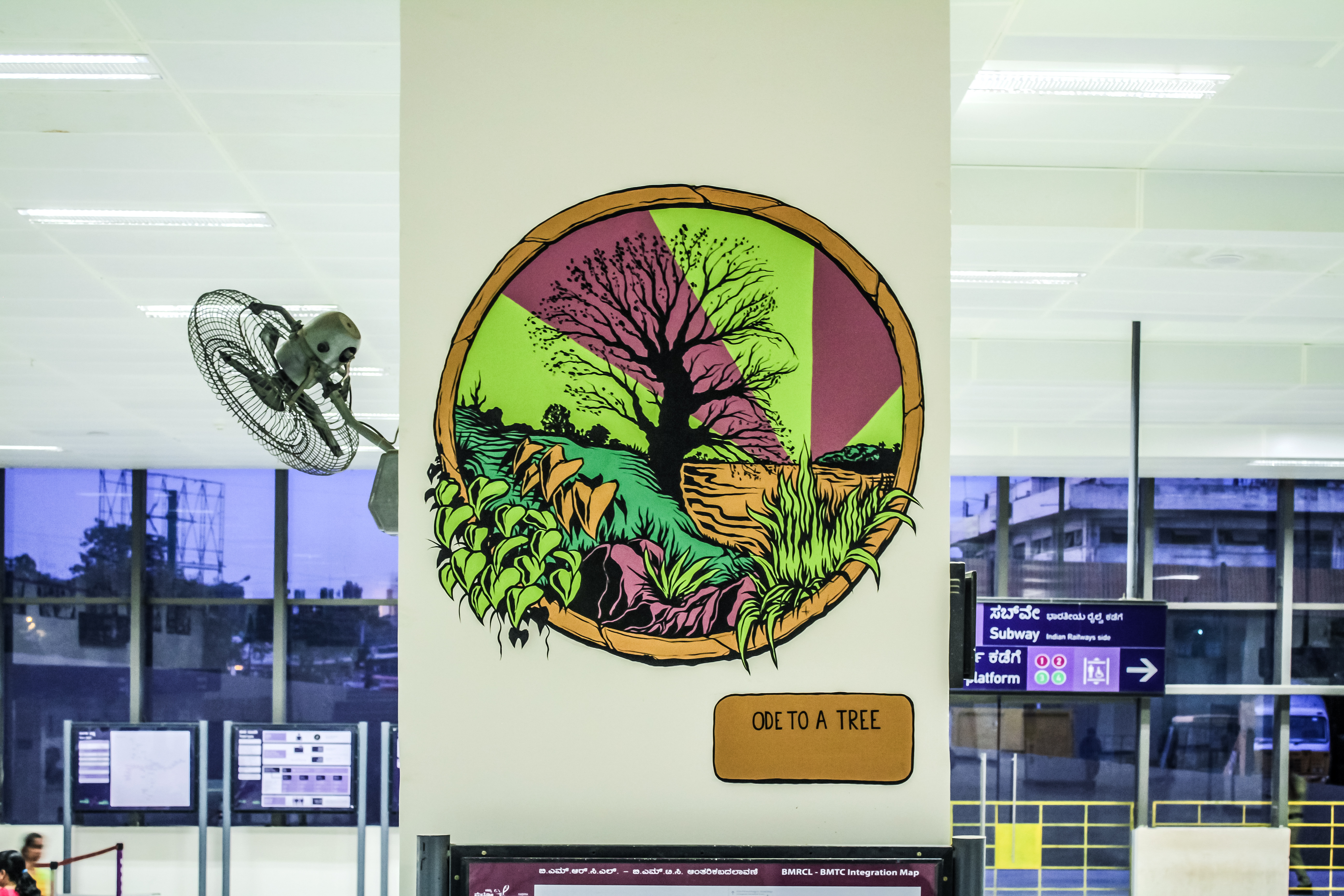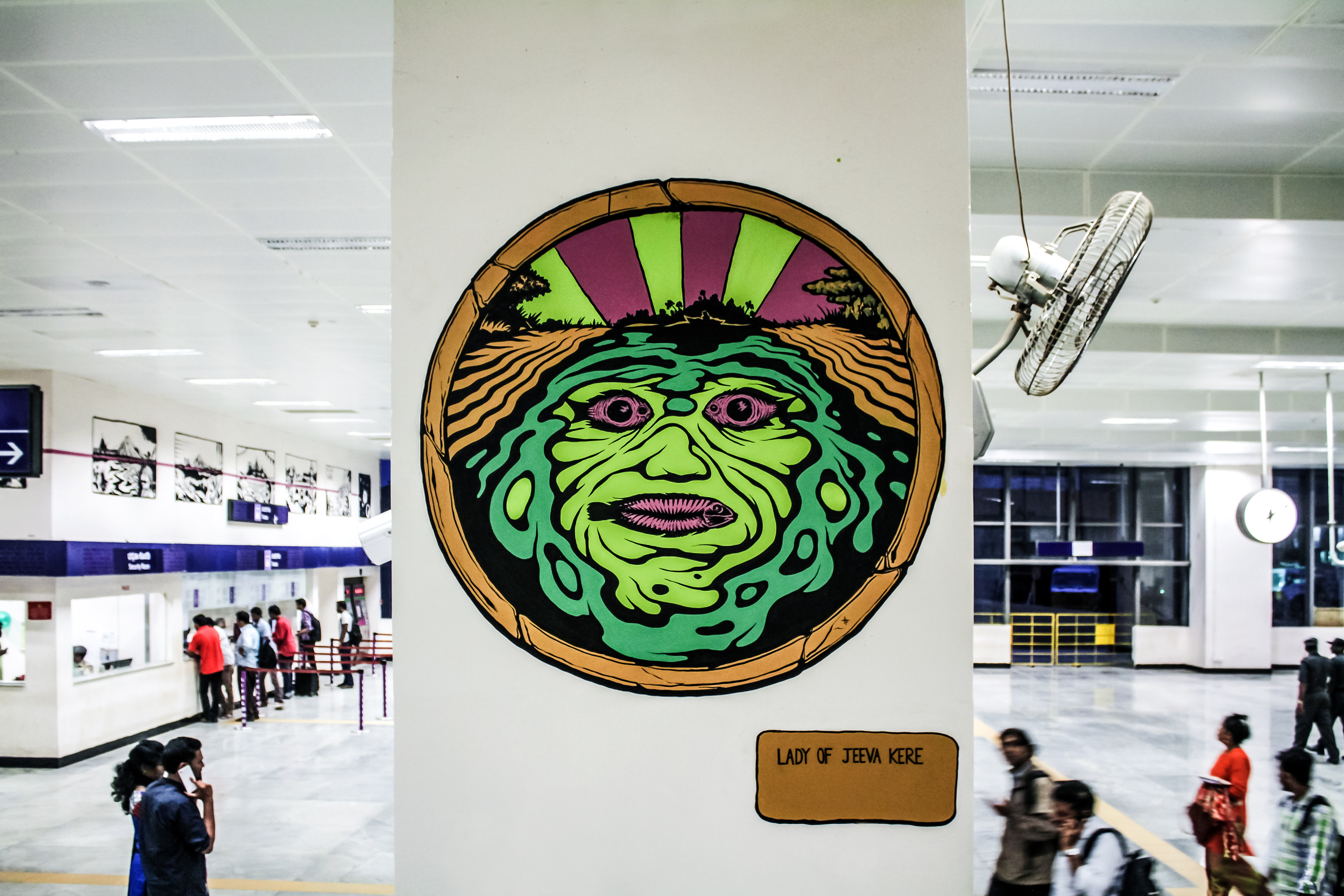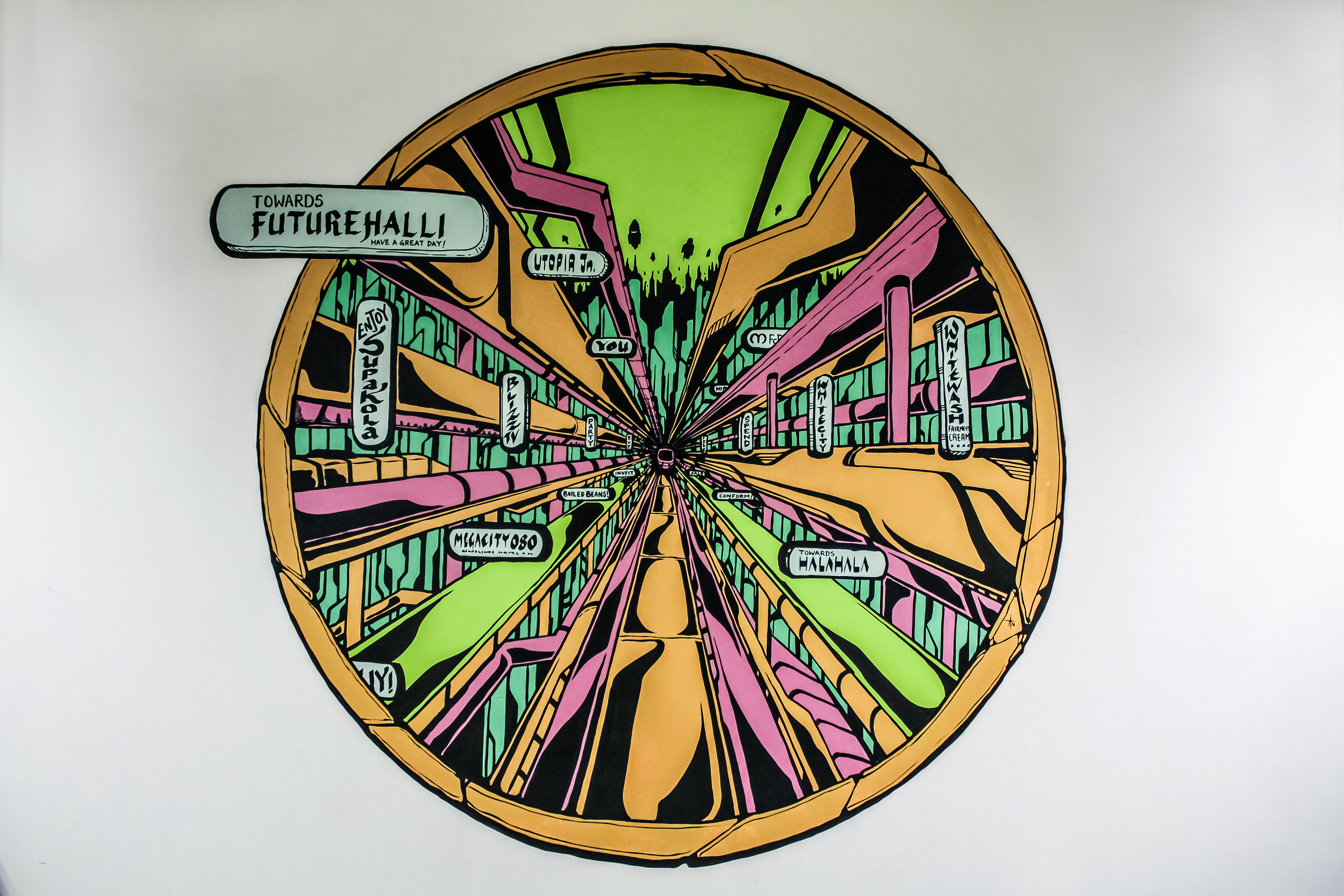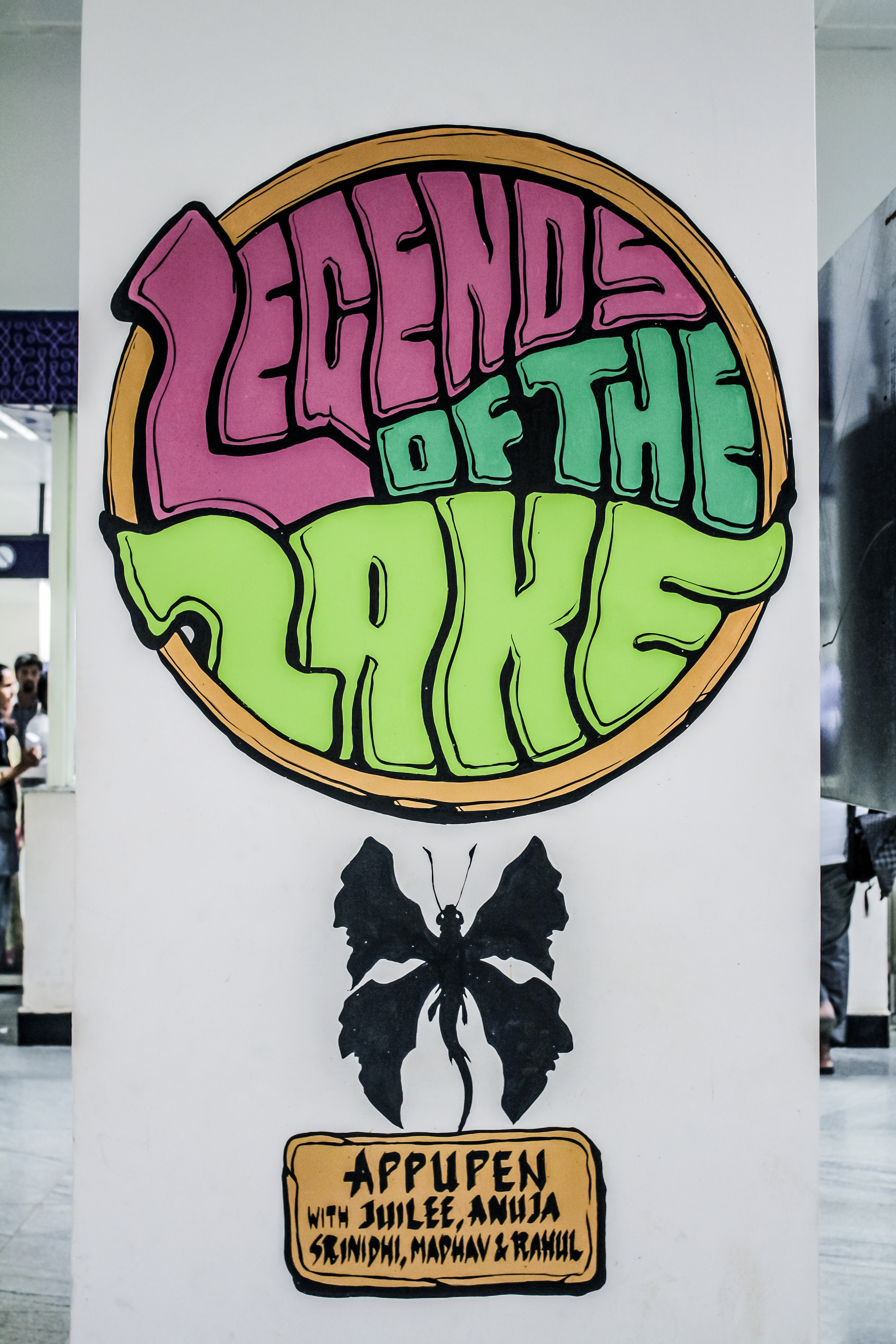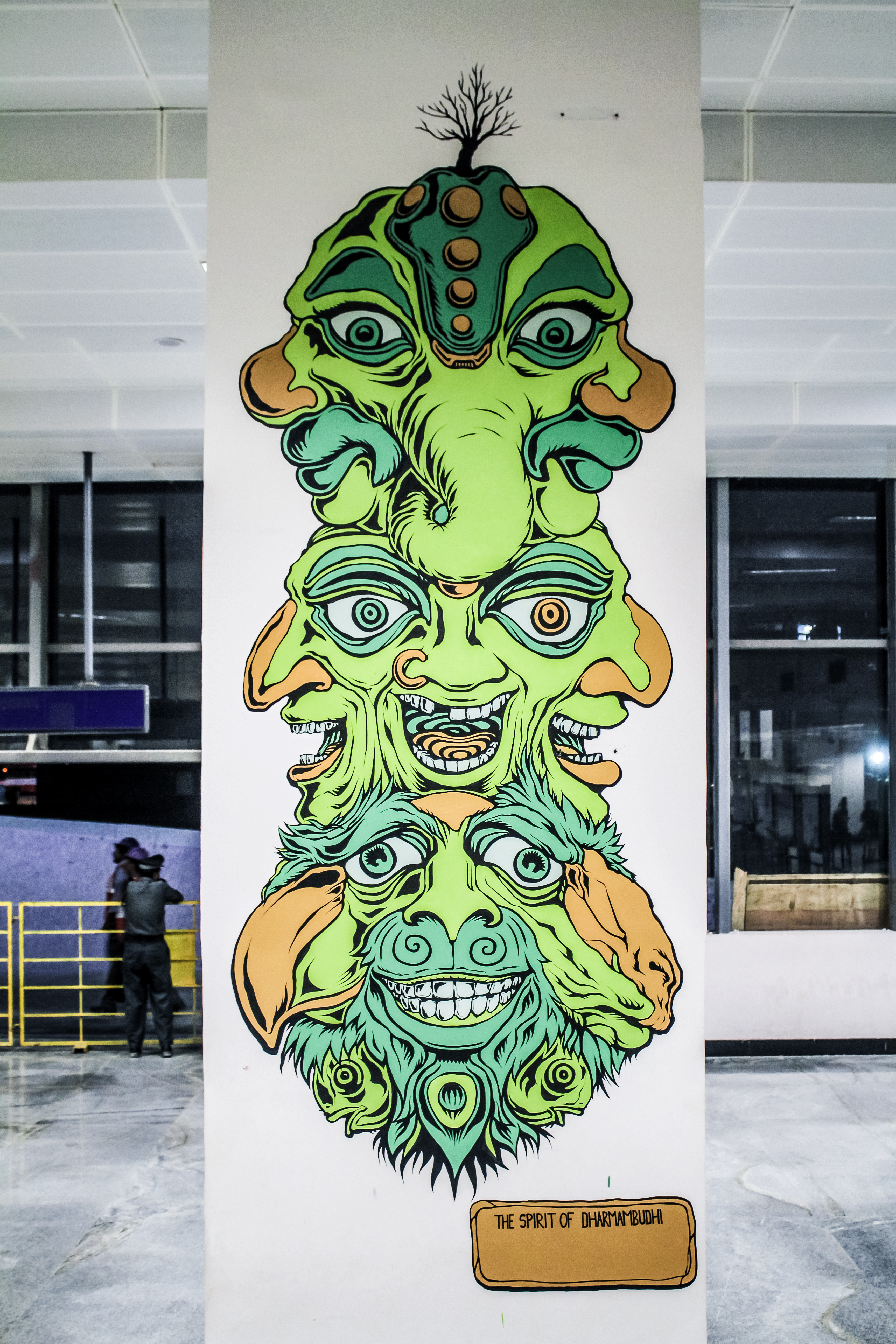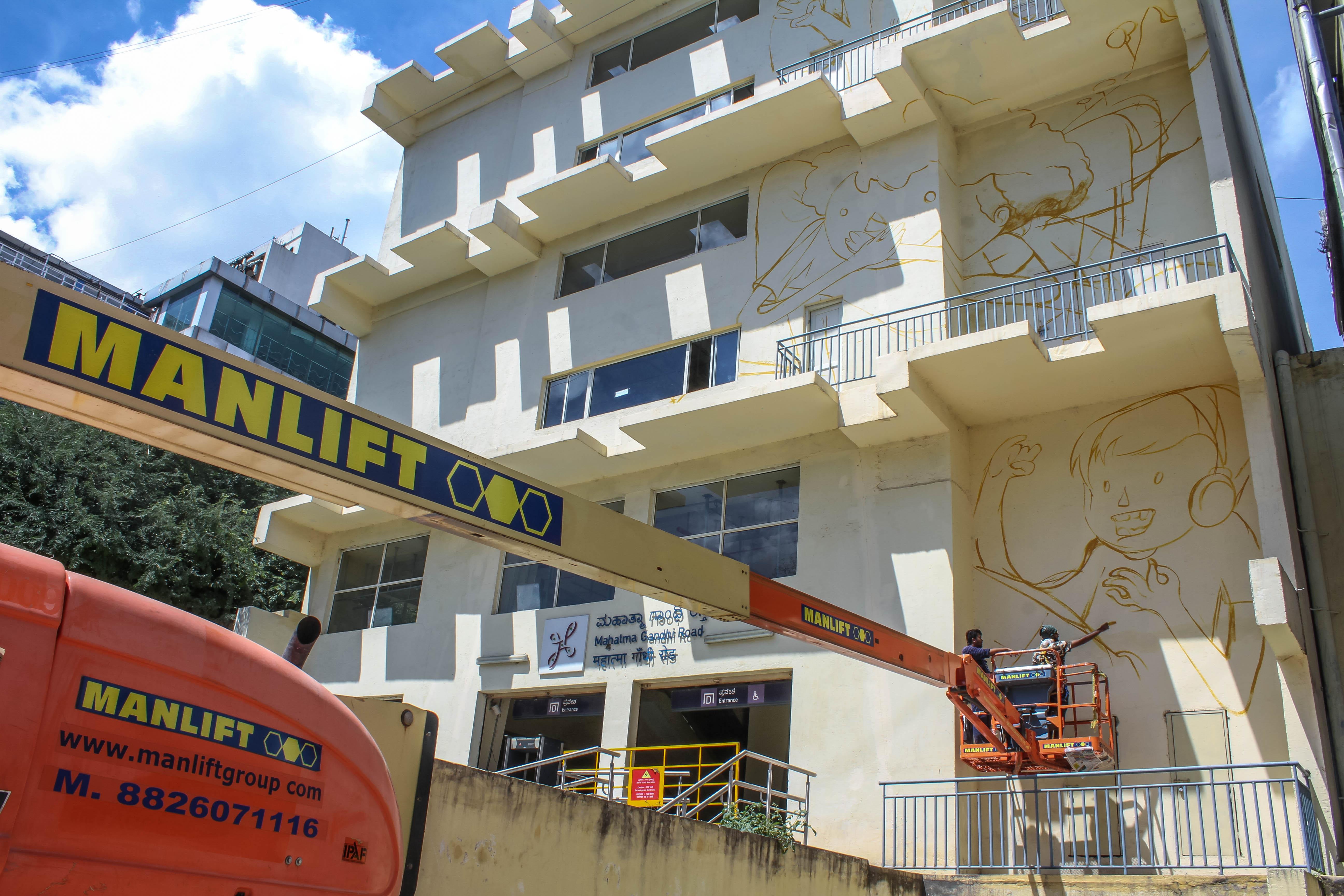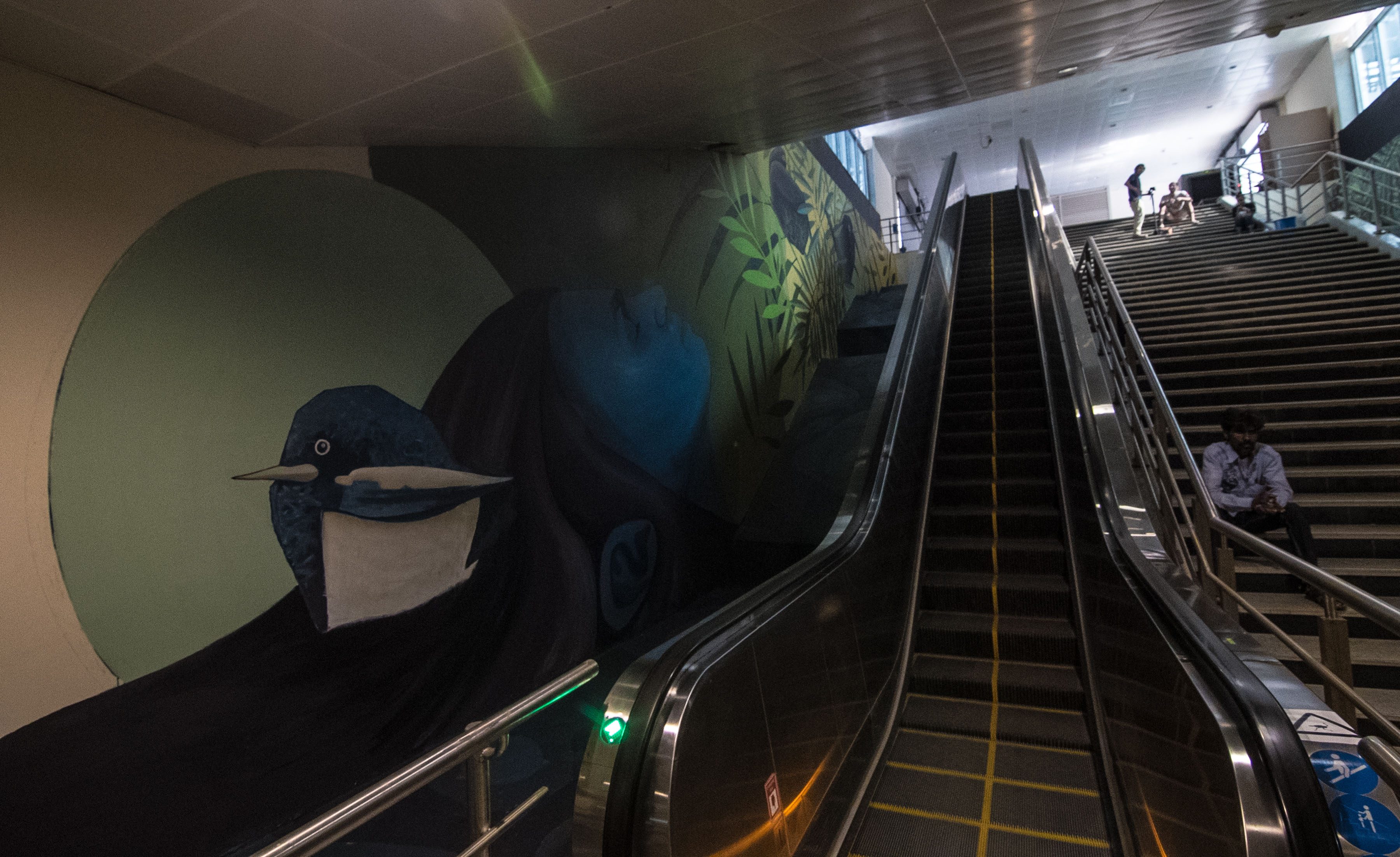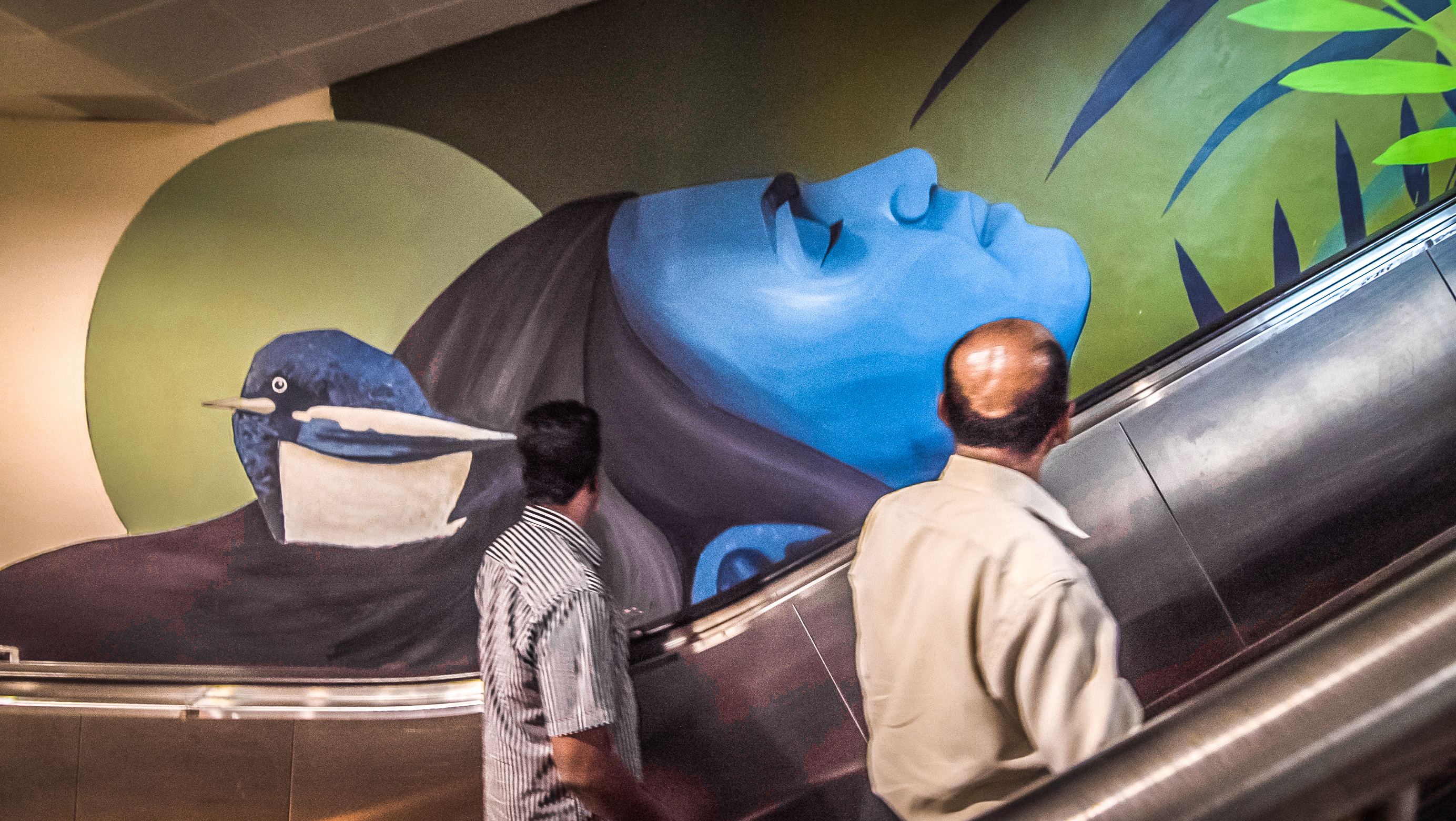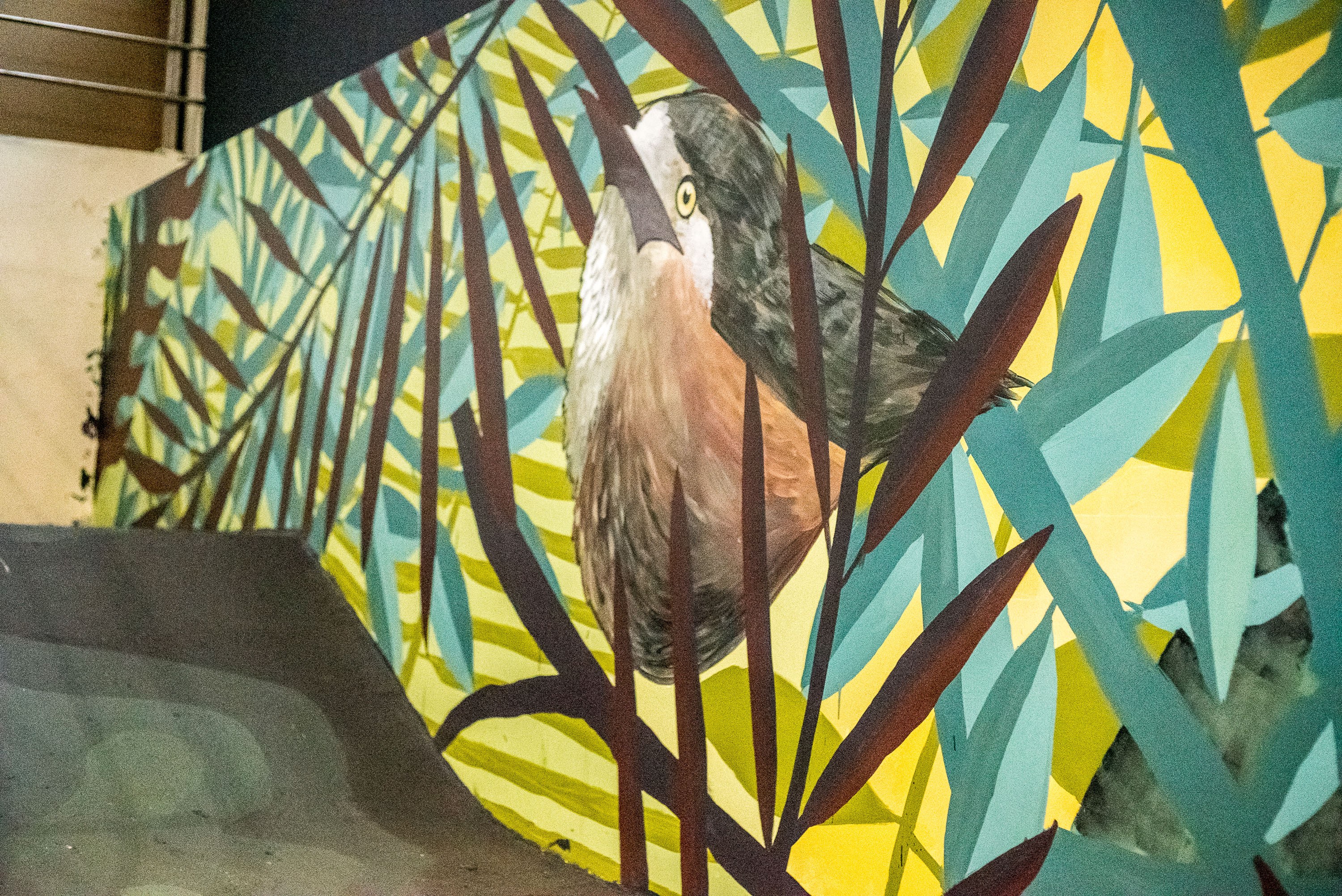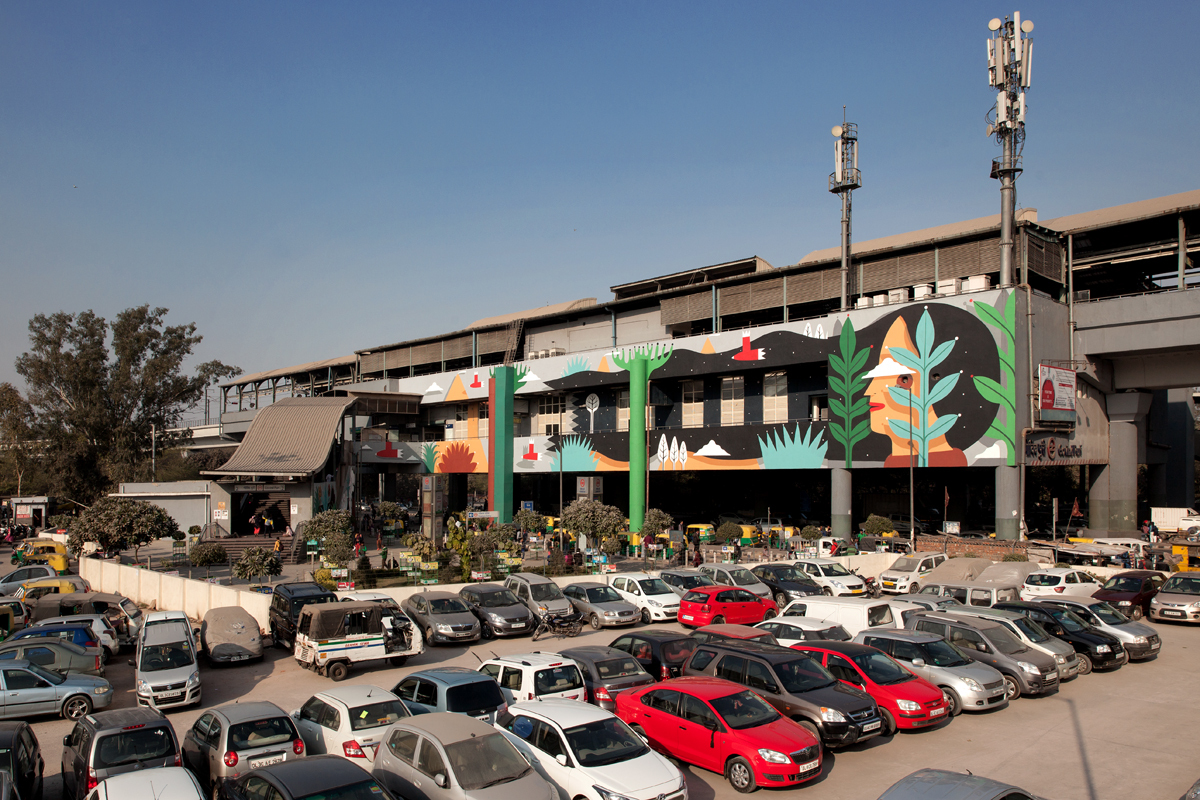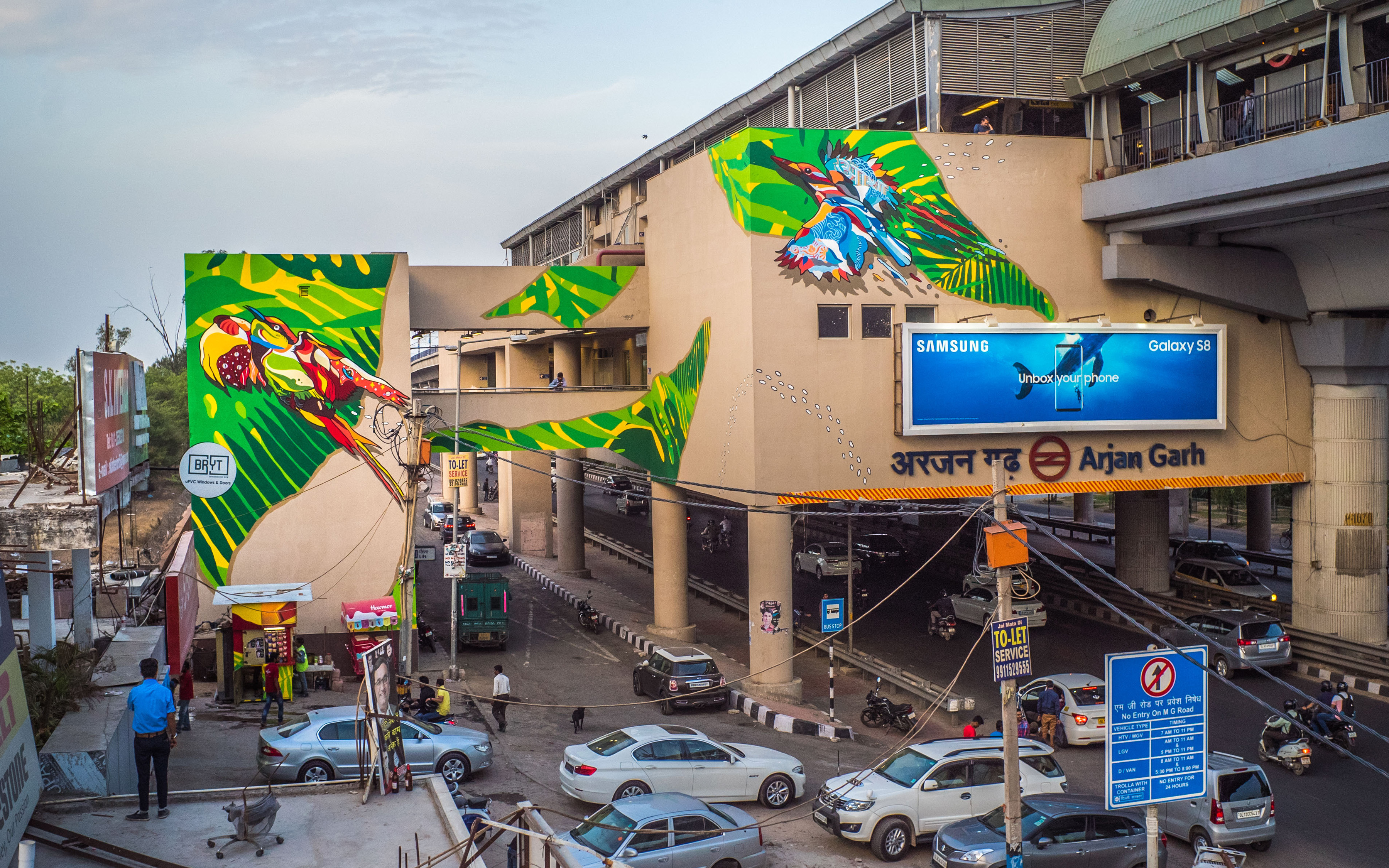As an extension of our ‘Art Stations’ (hyperlink) project, three metro stations were chosen for art interventions during St+art Bengaluru 2016. Walls inside and outside Majestic, Church Street and Cubbon Park metro stations were painted on to convert high footfall spaces into walk-through galleries. The aim was to provide a starting point for conversations with crores of people who commuted through these transit spaces every day.
Done in collaboration with the Bengaluru Metro Rail Corporation (BMRC), concepts for the artworks tried to encompass local narratives and the stations’ surrounding environments. The artists encapsulated the spirit, and history of Bengaluru in their murals, for them to resonate with the residents of the city.
Majestic Metro station
Considered the nucleus of Bengaluru transit, murals at the Kempegowda or Majestic metro station were created by artists Sameer Kulavoor and Appupen.
“The magnet is symbolic of the site and how it attracts a wide range of people for different reasons - be it commerce, culture or chaos. The density of people, architecture and things reduce as we move further away from the site itself.”
- Sameer Kulavoor, artistNative to Bengaluru artist Appupen worked on walls inside the metro station. Being a comic book artist, Appupen chose to narrate the past, present and future of Bengaluru through panels he painted across the metro station.
Appupen’s first piece featured the Dharmambudhi Lake - one of the several lakes that Bengaluru once boasted of. Reportedly built by Kempegowda, the lake thrived in the centre of the city for over three hundred years before it dried up.
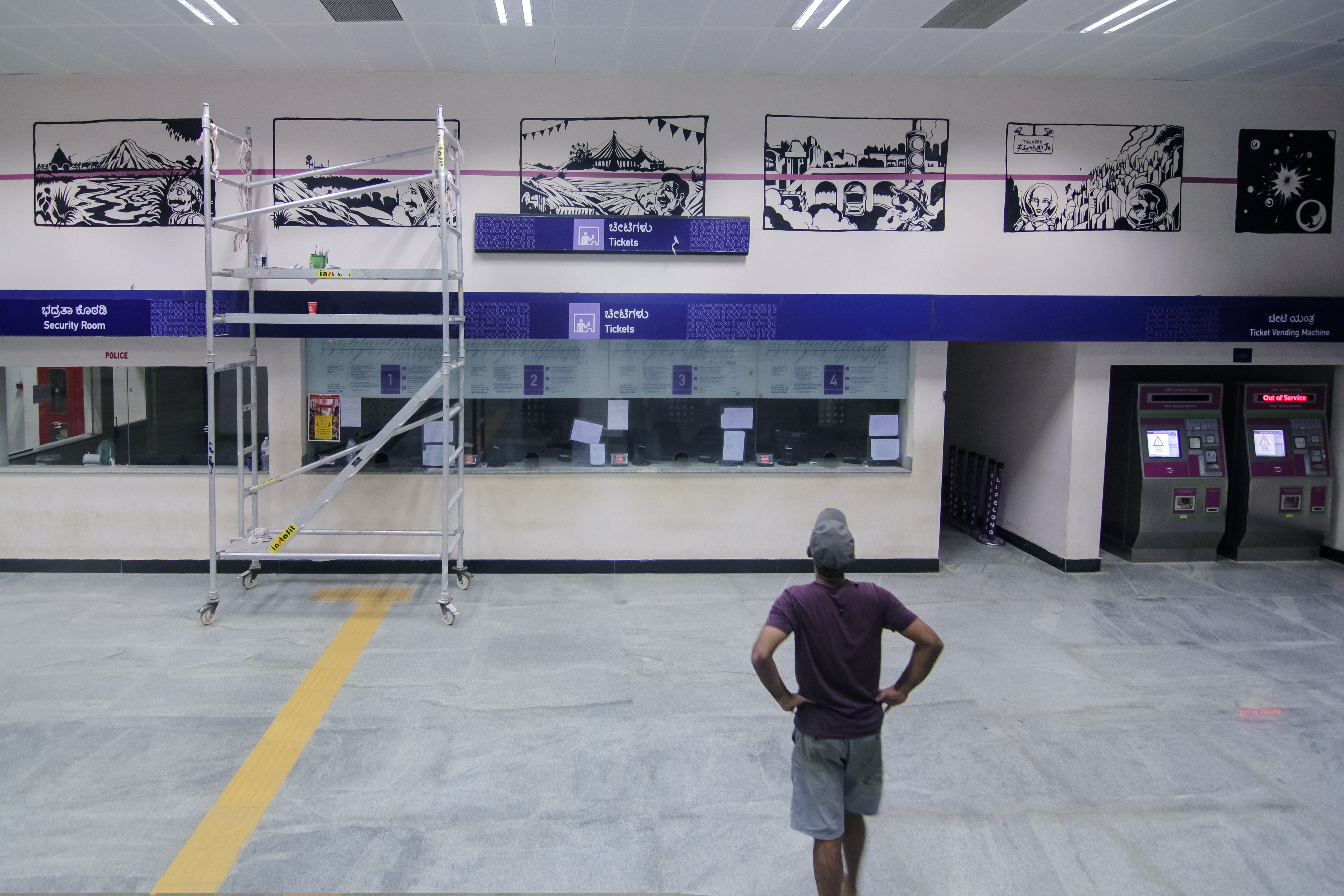
His second piece was made in his signature ‘Halahala’ style - one that he has been developing over years and has now pioneered and featured a slew of mythical stories that he brushed over before starting work. His final piece, above the ticket counter, showcased the ascent of the Majestic area as a cultural hotspot of the city - featuring its circuses and theatres, and its sprawling bus stand.
Church Street Metro Station
The Church Street metro station mural was created by artist Inkbrushnme, who drew a piece in an attempt to provide visual relief to passers-by.
While walking around the station area, the artist observed people’s conversations and sensed a lot of “depression and sadness in the air”. This prompted him to research the idea of using art as a remedy for despondency. He worked with the idea of creating a simple mural on a complicated surface - that of MG Road metro station. Relying on conceptual simplicity, as opposed to stylistic simplicity, the artist tried to steer clear of heavy abstraction and created a piece that would work well to provide visual relief to onlookers.
For the piece to exude vibrancy, the artist chose to work with a specific colour palette. Additionally, he invested a lot of time in detailing the piece so that people could find something new each time they saw it.
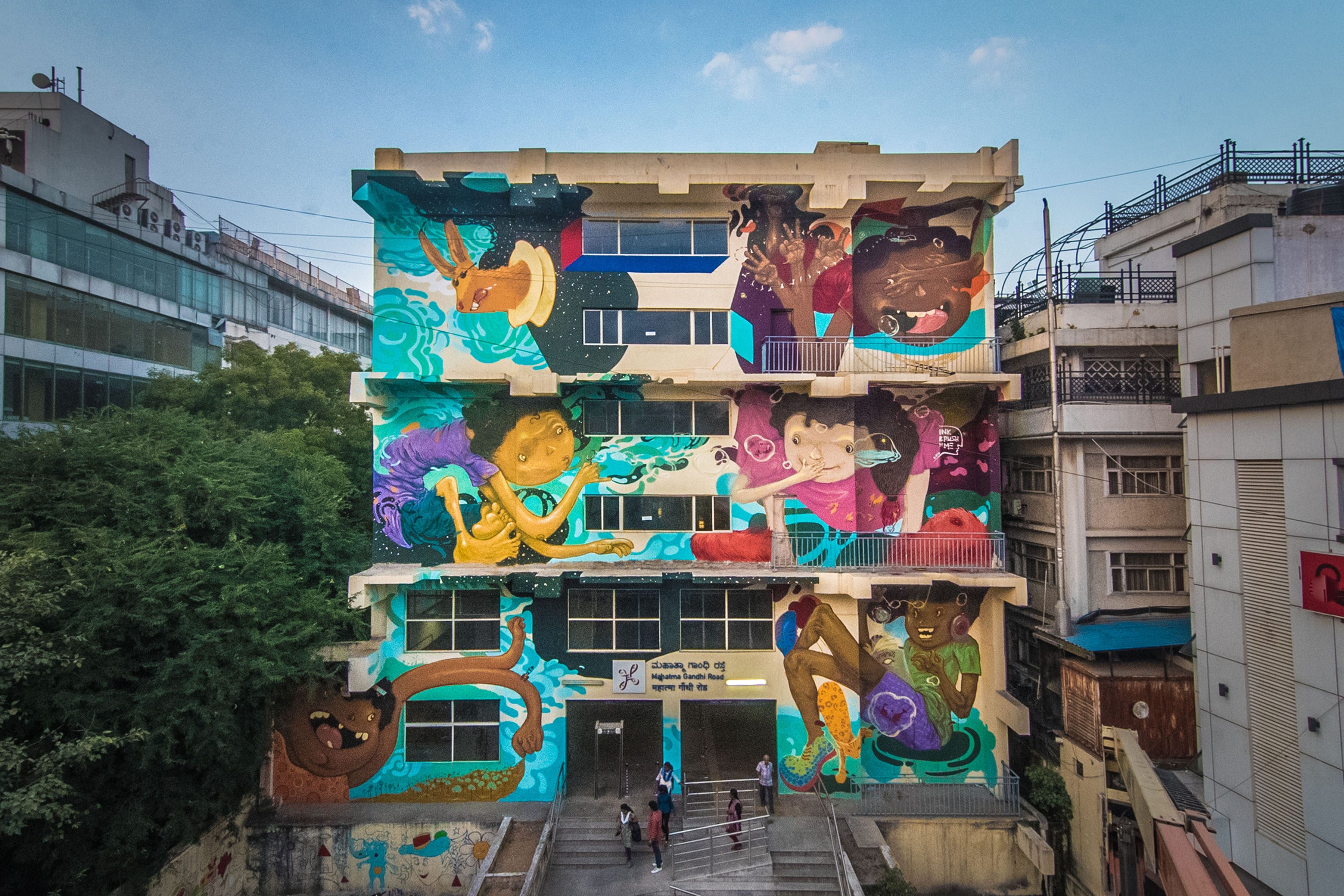
I wanted to work on a complicated surface and I’m glad MG Road happened. While walking and listening in to parts of conversations all around the area, I sensed a lot of depression and sadness in the air. So, I researched on the idea of using art as a remedy for such problems. In terms of a thought process, first the kids came into being, for their energy, innocence and positivity. Then the colours entered the picture. However, I invested a lot of time in detailing the piece, because I want people to find something new each time they see it.
- InkbrushmeCubbon Park Metro station
Bengaluru’s Cubbon Park is located in the heart of the city and is known as the Lungs of Bengaluru. Abundant in flora and fauna, the park was created in 1870 covering an area of 100 acres which has now grown to about 300 acres. The Cubbon Park metro station is located a few metres away from one of the entrances to the park.
Equipped with the rich history of the station’s surroundings, Serbian artist Artez chose to represent what happens in the park on walls inside the station, using local animals and flora of the region in his piece.
Meanwhile, French artist Remed observed several people in the park practicing yoga across the day, and saw the park as a communal space of gathering and activity. Working on the exterior of the metro station, Remed painted in his definitive style, with abstract colour forms depicting people engaged in spiritual pursuits. This was painted on a water coolant across the Station.
